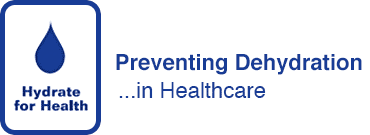This is what happens to your body when you’re dehydrated
We all know the feeling of waking up the morning after the night before with a mouth drier than the Sahara. But do you know what it’s actually doing to your body?
First up, dehydration occurs when your body loses more fluid than you take in – the body is affected even when you lose a small amount of fluid.
Common causes include sweating, fever, vomiting, diarrhea, frequent urination, not drinking enough fluids, consuming alcohol (a diuretic), and stress.
While recommendations vary on how much water we should be drinking a day, depending on activity levels, size, age, the NHS advises drinking enough fluid so that you’re not thirsty for long periods, and steadily increasing your fluid intake when exercising and during hot weather.
Yes, you get cravings for sweets. Mild dehydration is often masked as feelings of hunger, when really your body just needs fluids. The problem is that the hypothalamus, the portion of your brain responsible for controlling feelings of hunger and thirst, responds similarly whether you’re hungry or thirsty.
So, often, we think we need sweet things, when, in fact, we just need a tall glass of water.
You also get bad breath. One of your saliva’s functions is to clean your mouth. When you are dehydrated, you produce less saliva, so your mouth basically becomes a breeding ground for bacteria. Nice.
And your skin loses its elasticity. Your skin’s ability to bounce back when it’s pulled slightly is called skin turgor. If you’re dehydrated, your skin will have a lower skin turgor.
An easy way to test for dehydration is the skin turgor test. Lightly pinch the skin on the back of your hand and pull it up about 1cm before letting go. If the skin takes a few seconds to settle back down, you need to drink more.
You’ll also get headaches. Because your brain shrinks when you’re dehydrated. No joke.
When you haven’t taken on enough liquids, your brain tissue loses water, causing your brain to shrink and pull away from the skull. This triggers the pain receptors surrounding the brain, giving you a headache. Dehydration also causes your blood volume to drop, which in turn lowers the flow of blood and oxygen to the brain.
If all this sounds familiar, you’re probably not drinking enough water. So, here’s some tips on increasing your intake.
Original content: Metro 1st February 2016
